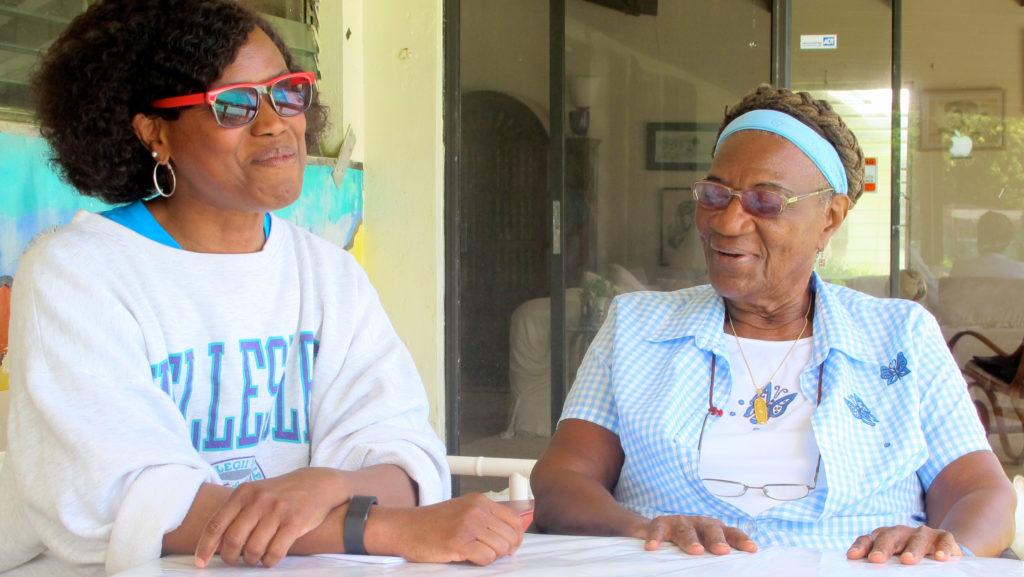Ithaca College’s women and gender studies program will host Gloria Joseph, professor emerita of Africana Studies at Hampshire College and partner of the late Audre Lorde, to talk about the poet’s life and work.
The event, “The Wind is Spirit: The life, love, and legacy of Audre Lorde” at 7 p.m. Sept. 27 in Textor Hall 101, will include a reading and discussion about excerpts from “The Wind is Spirit,” a bio-anthology of Lorde written by Joseph. The book was written to celebrate Lorde’s life, her passion and her legacy, emphasizing the impact she had on social and civil movements.
Lorde died in 1992 in St. Croix in the U.S. Virgin Islands, where she had lived with Joseph. She was primarily a black feminist and social advocate, but chose to emphasize all aspects of her identity by introducing herself as a Black lesbian, a woman, a warrior, a mother and a poet.
Joseph had been Lorde’s partner for many years, as well as a legend in black and feminist communities.
“Gloria is an incredible person,” said Carla Golden, coordinator for the women’s and gender studies program. “She is a feminist, activist, author [and] scholar.”
Joseph’s bio-anthology about Lorde sews together essays, photographs and input from other authors to collect the full story. She also includes contributions from a variety of important figures, such as Angela Davis, Assata Shakur, Jewelle Gomez, Lorde’s daughter and Lorde herself.
“The Wind is Spirit” focuses on Lorde’s position as a leader within many minority communities. Often describing herself as an outsider, Lorde used intersectionality to describe her diverse identity, Golden said.
“Race and class and gender and sexual orientation … are all intertwined,” Golden said. “[Lorde] was the living embodiment of [intersectionality] when she would introduce herself with a whole string of descriptors … including poet, warrior, breast cancer survivor.”
Joseph received her Ph.D. in education psychology from Cornell University and taught Africana Studies at Hampshire College in Amherst, Massachusetts. Golden said Joseph’s role as a behind-the-scenes facilitator in creating movements and social change was vital, similar to her prominent role as an educator, advocate and author. Joseph founded and co-founded numerous black and feminist organizations, including Sisterhood in Support of Sisters in South Africa, a philanthropic organization dedicated to providing aid to women in Soweto involved in self-help projects, and Women’s Coalition of St. Croix, an advocacy group offering assistance to victims of physical and emotional abuse.
She also went on to author and co-author numerous novels, anthologies and essays, including “On Time and In Step: Reunion on the Glory Road,” “Common Difference: Conflicts in Black and White Feminist Perspectives” and “Hell Under God’s Orders.”
During Joseph’s time at Hampshire College, she taught a class called The Significant Role of Black Women in Women’s Studies. Harriet Malinowitz, a writing lecturer at Ithaca College, was taught by Joseph. She recalls the class with fondness and passion and said it was a life-changing experience. Joseph brought in prominent black and feminist guest speakers, including Lorde, who spoke about their own disciplines and experiences. Malinowitz said they focused on how black feminist issues either arose in their disciplines or, more often, didn’t arise when they should have.
“[This class] made me aware of the whole fabric of life in which race and gender and other things are completely woven into that fabric,” she said. “It made me aware of the silences around these things. Probably the big takeaway … was that you don’t keep your mouth shut.”
Derek Adams, assistant professor in the Department of English who specializes in African-American literature, said he respects Lorde’s dedication to holding on to every part of her identity. He said he takes advantage of any opportunity he can to include Lorde’s work in his curriculum.
“I think she is one of the few people who can … make the most simple point in the most poetic way … [and those points] are so revolutionary and profound,” he said.
Adams said Lorde leaves behind the powerful message that drawing attention to systems of injustice is vital. He said whether or not a person is oppressed, the outcome of punishment will remain the same; however, the person who is not oppressed will have had a better chance of being heard.
“Speaking out against injustice is totally the thing to do because otherwise you’re only ever living in fear and that’s not a way to live,” Adams said.
The story has been modified to reflect the following: Gloria Joseph identifies a Black lesbian, a woman, a warrior, a mother and a poet.














